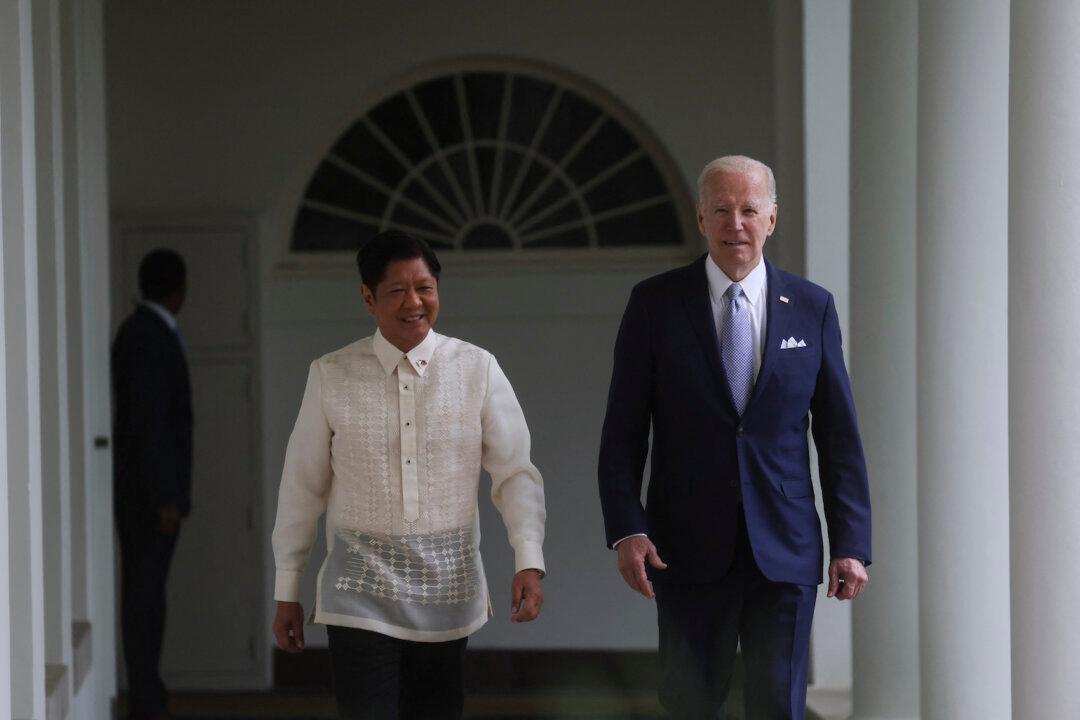The United States and the Philippines reaffirmed on May 1 the need for peace across the Taiwan Strait amid the Beijing regime’s intimidating actions against the self-ruled island.
President Joe Biden and his Philippine counterpart, Ferdinand Marcos Jr., issued a joint statement in connection with their meeting at the White House that reaffirmed their commitment to deepen the U.S.–Philippines security alliance.





